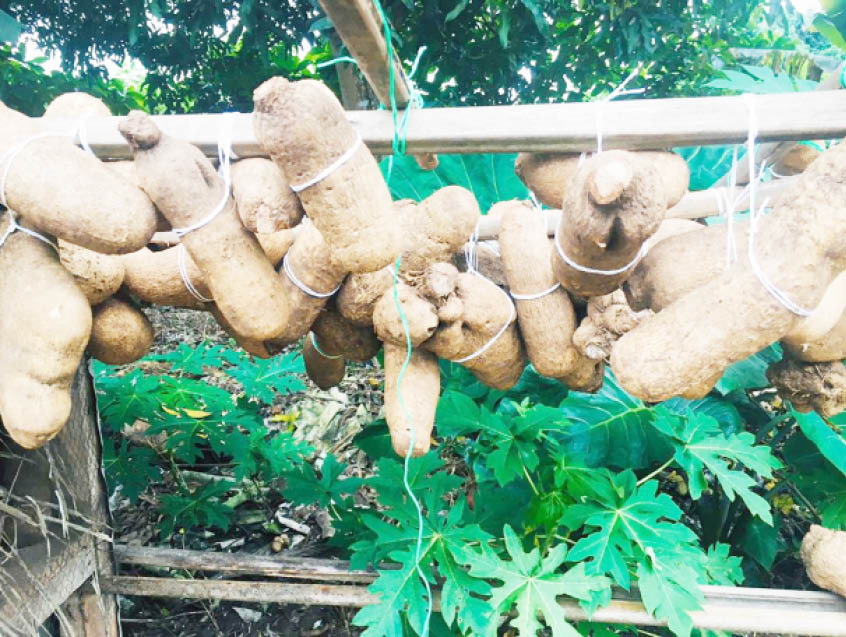NRCRI releases additional yam, cassava varieties for farmers
The National Root Crops Research Institute (NRCRI) Umudike, Abia State, has released additional root crop varieties for Nigerian farmers. Speaking exclusively with Daily Trust recently, a director at NRCRI, Godwin Asumugha, described root crops such as cassava, yam, tumeric and sweet potatoes as the engine of economic growth, and stressed that Nigeria must take advantage […]

New yam seed variety
The National Root Crops Research Institute (NRCRI) Umudike, Abia State, has released additional root crop varieties for Nigerian farmers.
Speaking exclusively with Daily Trust recently, a director at NRCRI, Godwin Asumugha, described root crops such as cassava, yam, tumeric and sweet potatoes as the engine of economic growth, and stressed that Nigeria must take advantage of their economic potentials.
Asumugha said root crop production in Nigeria is increasing due to development of improved varieties which, he said, are very highly loaded and with resistance to pests and diseases.
According to him, as the rainy season approaches, the institute is looking at injecting new varieties of root crops into the market.
For cassava, he said the varieties are TME419, TMS13F1160P0004 (Game Changer), IBA980505 (Fine face), IBA961632 (Farmer’s Pride), IBA070593 (Sunshine), and TMEB693 (Poundable) among others.
The director said about 10 varieties of yam are widely cultivated around the world, but three species (D. rotundata, D. alata, and D. cayenensis) account for 93 percent of the global yam production.
In his words, “Yam crops face pressure from a range of insect pests, fungal and viral diseases, and nematodes and the crop has a lower yield per hectare compared to crops such as cassava or sweet potato. Despite these constraints, yams are an important food security crop and have thus continued to attract a modest amount of research and development.
“Moving forward, the NRCRI in the root and tuber crops sector released additional varieties on January 12, 2022. They include: For Cassava: 3 Provitamin A Varieties as follows: Umucass 52 Called Headmaster, Umucass 53 named Security and Umucass 54 called No Hunger. For Ginger Landraces: Umugin 1 and Umugin 2 and Yam: Favorite.”
While stating that technologies are very important and sustainable ways of improving the productivity of root and tuber crops, he noted that the institute has developed and transferred different technologies on root and tuber crops to farmers in Nigeria to increase their productivity and income.
“Technology is globally recognized as a power key and major ingredient for socio-economic development of any nation. It encompasses all skill, knowledge, processes, procedures or methods used to carry out man’s activities.”
He said root crop production in Nigeria has some challenges such as poor seed, disease infestation (late blight), inadequate storage facilities and mechanization among others that must be addressed at both the federal and state levels.
While calling for funding for research from the federal government, he appealed for more robust collaboration with relevant government authorities, agencies, research institutes and other non-governmental stakeholders for a holistic approach to the revitalization of root crops.
He urged the Federal Ministry of Agriculture and Rural Development to explore the opportunities and resources available to support subsequent initiatives that would boost root crop production and processing in the country.
“Nigeria has a comparative advantage in the production of root and tuber crops. In reality, the country leads in the production of yam, cassava and sweet potatoes in Africa, and ranks as 7th highest producer of Irish potatoes,” he added.
